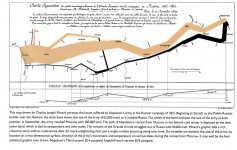SLD
Contributor
https://en.wikipedia.org/wiki/Operation_Barbarossa
Today is the 80th anniversary of Operation Barbarossa, perhaps the greatest conflagration in the history of the world. Many claim that it started out so well for the Germans only later to end in disaster. But in truth it struggled from the beginning and the Germans could never keep up with their overly ambitious timetable. Maybe if they’d started earlier they would’ve reached Moscow before the winter. Maybe if they hadn’t been distracted by Crete, they’d have had more men and supplies. But even if they’d captured Moscow, would that have ended it. Napoleon captured Moscow only to abandon it later.
I once heard a lecture from a German staff officer talking about the wargaming that the General Staff went through prior to the Operation. They figured they would destroy 100 Russian Divisions. They actually destroyed more than that. What they failed to game was the Russian ability to replace their losses.
In truth Hitler, like many other generals from Hannibal to Napoleon to Lee was a victim of his own success. Overconfident, believing in his own invincibility that the normal rules of warfare don’t apply to him, and ignoring a serious threat on his flank that he thought wasn’t important.
Today is the 80th anniversary of Operation Barbarossa, perhaps the greatest conflagration in the history of the world. Many claim that it started out so well for the Germans only later to end in disaster. But in truth it struggled from the beginning and the Germans could never keep up with their overly ambitious timetable. Maybe if they’d started earlier they would’ve reached Moscow before the winter. Maybe if they hadn’t been distracted by Crete, they’d have had more men and supplies. But even if they’d captured Moscow, would that have ended it. Napoleon captured Moscow only to abandon it later.
I once heard a lecture from a German staff officer talking about the wargaming that the General Staff went through prior to the Operation. They figured they would destroy 100 Russian Divisions. They actually destroyed more than that. What they failed to game was the Russian ability to replace their losses.
In truth Hitler, like many other generals from Hannibal to Napoleon to Lee was a victim of his own success. Overconfident, believing in his own invincibility that the normal rules of warfare don’t apply to him, and ignoring a serious threat on his flank that he thought wasn’t important.

